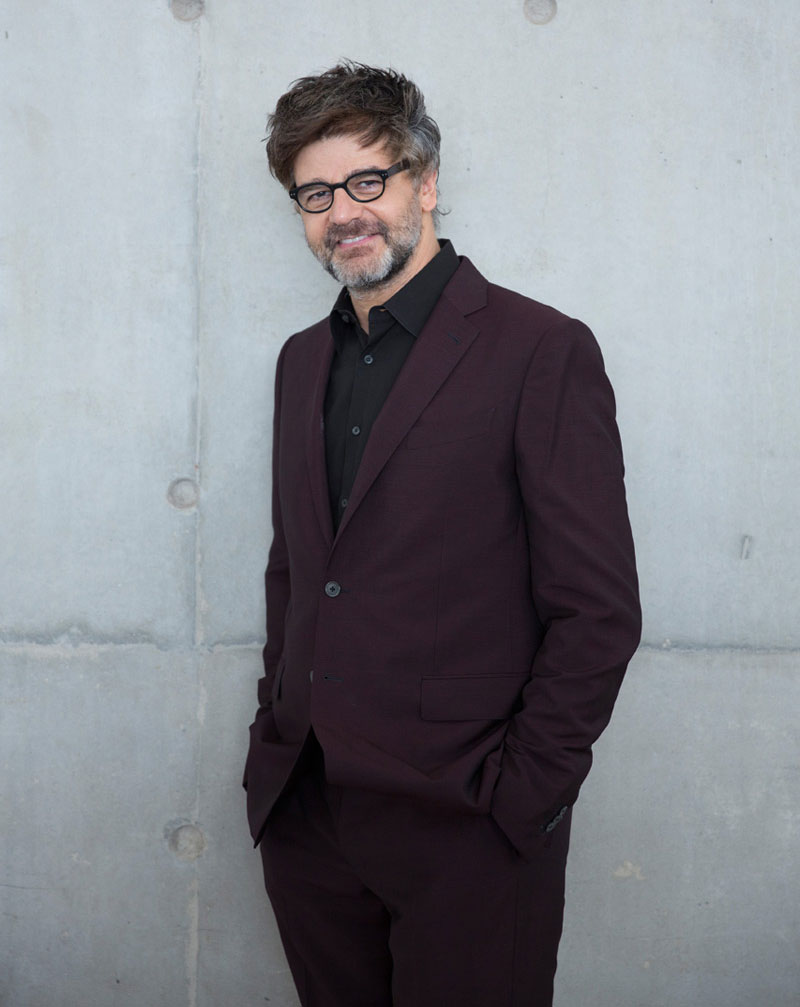Luiz Fernando Carvalho is a filmmaker, television director and screenwriter. His works interact with several other artistic expressions, mainly Brazilian Literature, and is characterized in each work by the constant reinvention of the language and aesthetic rupture with official models.
Part of the critics compares his work with the movement of the New Cinema and to some of the most important filmmakers in the history of cinema, such as Andrei Tarkovski and Luchino Visconti. His efforts seem to always strive to provide visuality to a world forgot in memories, time and space – guided by a sincere artistic unrest and by the investigation of the Brazilian cultural identity.
Graduated in Architecture and Literature, the filmmaker already filmed romances from major writers such as Raduan Nassar (Lavoura Arcaica), Ariano Suassuna (A Farsa da Boa Preguiça and Romance d’A Pedra do Reino e o Príncipe do Sangue Vai-e-Volta), Milton Hatoum (Dois Irmãos), Machado de Assis (Dom Casmurro), Roland Barthes (Fragmentos de um Discurso Amoroso), Eça de Queirós (Os Maias), Clarice Lispector (Correio Feminino), José Lins do Rego (Riacho Doce) e Graciliano Ramos (Alexandre e Outros Heróis).
The collaborative process is one of the main pillars of his work, who developed a method based on the crossing of several languages, from theatrical procedures, moving on to investigations of body and dance up to the work with commedia dell’arte masks and shamanistic rituals of Brazilian indigenous people.
In all his works, from its very first feature film, staff and cast experience together the creation process in a warehouse. For the director, an individual will always know less of something than another, and therefore, all can learn from and influence each other. The creation group is encouraged to work as co-author of the story to be narrated.
Born in Rio de Janeiro in 1960, Luiz Fernando Carvalho earned his qualification in cinema as a self-taught person, visiting the Cinemateca of MAM during his golden age, where he watched several times the greatest works of world cinema. After each session, the director wrote down his reflections in his notebook. His remarks included several issues such as: lights, performance, framing and editing – the main elements of his work.
Luiz Fernando Carvalho debut as a director and writer when he was 24 years old with the short film A Espera, awarded with the Concha de Oro in San Sebastian Film Festival (Spain), Best Short Film in Gramado Film Festival and Special Jury Award in the Ste Therèse Film Festival (Canada).
In 2001, he launched his first feature film, Lavoura Arcaia (To the Left of the Father) acclaimed by both critics and audience, which had his debut with only two copies. The movie received more than 50 international and national awards: Best Artistic Contribution in the Montreal Festival, Special Jury Award in Biarritz, Best Critics and Audience Movie in the International Festival of Independent Cinema held in Buenos Aires, Special Jury Award in the Havana Festival, among others.
In television, the director envisioned projects that market history with major repercussion of critical reception and audience, such as the miniseries Os Maias, Capitu, Suburbia, A Pedra do Reino, Correio Feminino e Afinal, O Que Querem as Mulheres? and the soap operas O Rei do Gado, Renascer, Meu Pedacinho de Chão and Velho Chico, a finalist in the International Emmy Awards. Among the several series he created and/or directed, there is also Hoje é Dia de Maria, Alexandre e Outros Heróis and O Auto da Nossa Senhora da Luz, (finalists in several categories in the International Emmy Awards); Os Homens Querem Paz (finalist in the The New York Festivals) and Giovanna e Enrico (selected as Hors Concours in Banff Mountain Film Festival).

